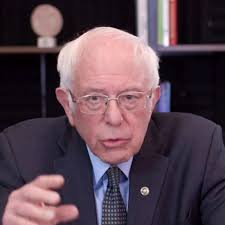Let me begin by thanking Westminster College, which year after year invites political leaders to discuss the important issue of foreign policy and America's role in the world. I am honored to be here today and I thank you very much for the invitation.
One of the reasons I accepted the invitation to speak here is that I strongly believe that not only do we need to begin a more vigorous debate about foreign policy, we also need to broaden our understanding of what foreign policy is.
So let me be clear:
Foreign policy is directly related to military policy and has everything to do with almost 7,000 young Americans being killed in Iraq and Afghanistan, and tens of thousands coming home wounded in body and spirit from a war we should never have started. That's foreign policy. And foreign policy is about hundreds of thousands of people in Iraq and Afghanistan dying in that same war.
Foreign policy is about U.S. government budget priorities. At a time when we already spend more on defense than the next 12 nations combined, foreign policy is about authorizing a defense budget of some $700 billion, including a $50 billion increase passed just last week.
Meanwhile, at the exact same time as the president and many of my Republican colleagues want to substantially increase military spending, they want to throw 32 million Americans off of the health insurance they currently have because, supposedly, they are worried about the budget deficit. While greatly increasing military spending they also want to cut education, environmental protection and the needs of children and seniors.
Foreign policy, therefore, is remembering what Dwight D. Eisenhower said as he left office: "In the councils of government, we must guard against the acquisition of unwarranted influence, whether sought or unsought, by the military industrial complex. The potential for the disastrous rise of misplaced power exists and will persist."
And he also reminded us that: "Every gun that is made, every warship launched, every rocket fired signifies, in the final sense, a theft from those who hunger and are not fed, those who are cold and are not clothed. This world in arms is not spending money alone. It is spending the sweat of its laborers, the genius of its scientists, the hopes of its children. The cost of one modern heavy bomber is this: a modern brick school in more than 30 cities. It is two electric power plants, each serving a town of 60,000 population. It is two fine, fully equipped hospitals. It is some 50 miles of concrete highway--
What Eisenhower said over 50 years ago is even more true today.
Foreign policy is about whether we continue to champion the values of freedom, democracy and justice, values which have been a beacon of hope for people throughout the world, or whether we support undemocratic, repressive regimes, which torture, jail and deny basic rights to their citizens.
What foreign policy also means is that if we are going to expound the virtues of democracy and justice abroad, and be taken seriously, we need to practice those values here at home. That means continuing the struggle to end racism, sexism, xenophobia and homophobia here in the United States and making it clear that when people in America march on our streets as neo-Nazis or white supremacists, we have no ambiguity in condemning everything they stand for.
There are no two sides on that issue.
Foreign policy is not just tied into military affairs, it is directly connected to economics. Foreign policy must take into account the outrageous income and wealth inequality that exists globally and in our own country. This planet will not be secure or peaceful when so few have so much, and so many have so little -- and when we advance day after day into an oligarchic form of society where a small number of extraordinarily powerful special interests exert enormous influence over the economic and political life of the world.
There is no moral or economic justification for the six wealthiest people in the world having as much wealth as the bottom half of the world's population -- 3.7 billion people. There is no justification for the incredible power and dominance that Wall Street, giant multi-national corporations and international financial institutions have over the affairs of sovereign countries throughout the world.
At a time when climate change is causing devastating problems here in America and around the world, foreign policy is about whether we work with the international community -- with China, Russia, India and countries around the world -- to transform our energy systems away from fossil fuel to energy efficiency and sustainable energy. Sensible foreign policy understands that climate change is a real threat to every country on Earth, that it is not a hoax, and that no country alone can effectively combat it. It is an issue for the entire international community, and an issue that the United States should be leading in, not ignoring or denying.
Next Page 1 | 2 | 3 | 4 | 5 | 6 | 7
(Note: You can view every article as one long page if you sign up as an Advocate Member, or higher).





